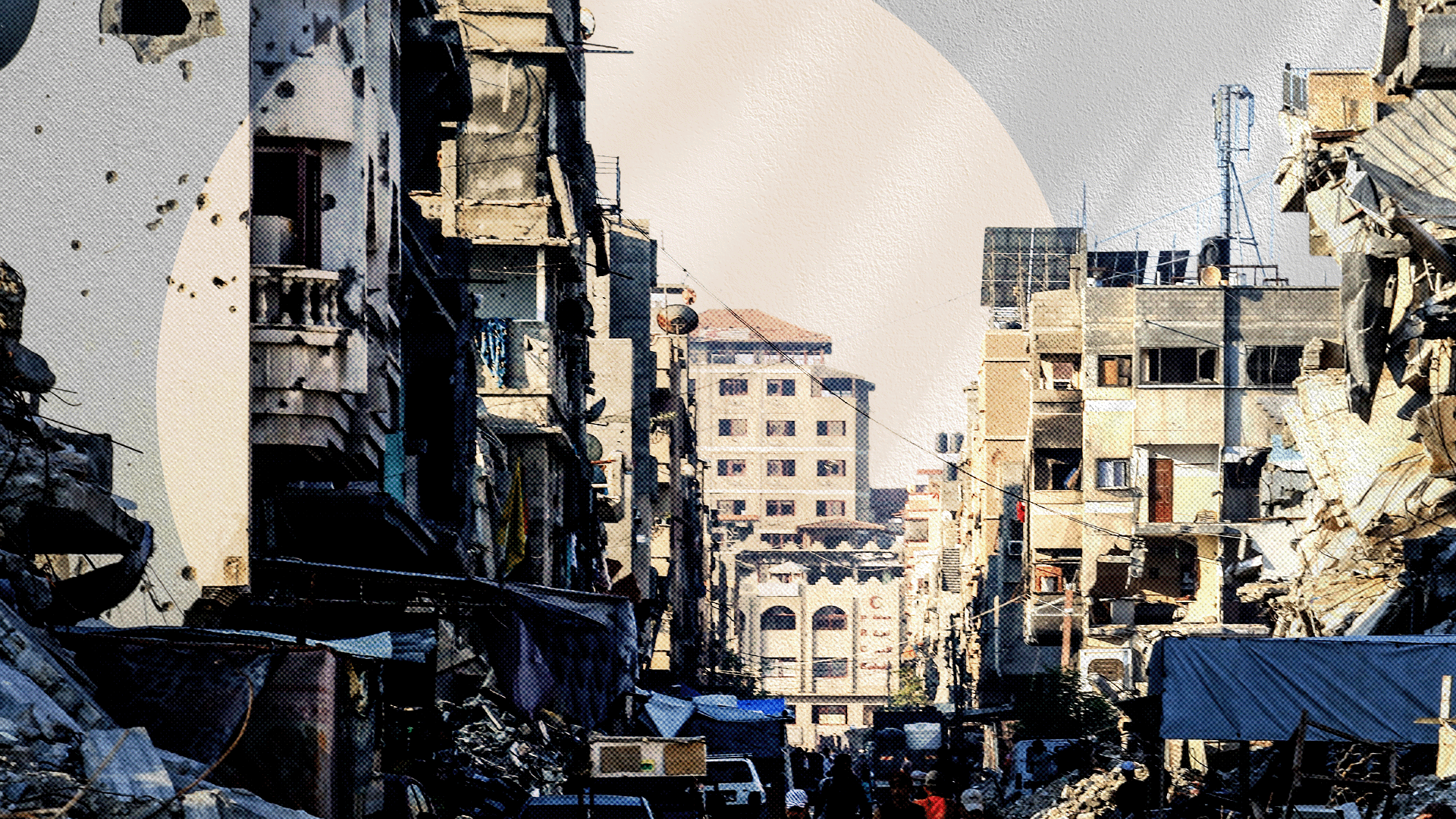Palestinians face uncertainties over Abbas succession
- Published
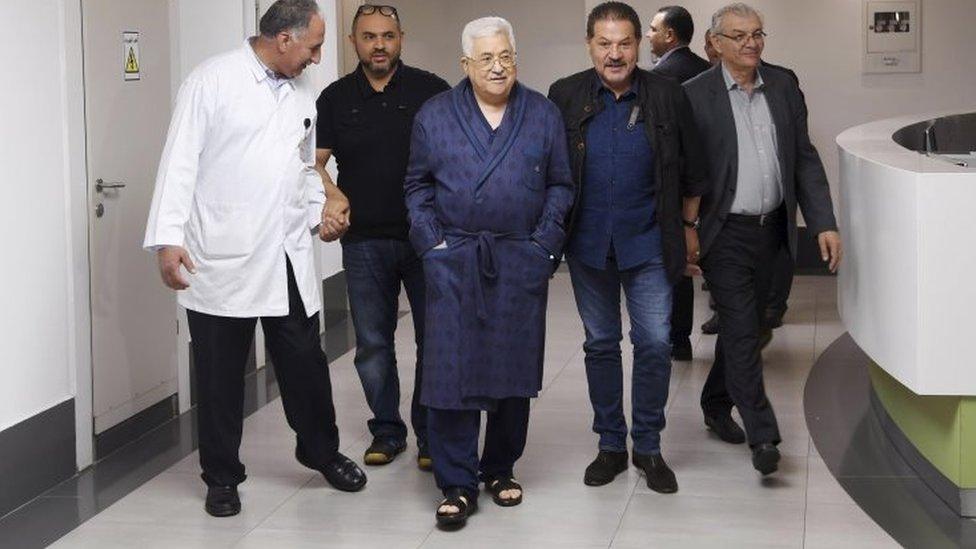
Mahmoud Abbas's office released this image of the president (centre) walking in a hospital corridor
Wearing an elegant dressing gown, the Palestinian President, Mahmoud Abbas, is shown walking unaided along the corridor of Ramallah's best private hospital.
A family photograph has him sitting upright in bed casually studying a newspaper.
A hospital official said the 83-year-old leader - who had surgery on his ear last week - now had inflammation in his lung but was "responding to the treatment quickly and recovering".
The message was clearly meant to quell swirling rumours of the president's imminent demise.
However, his latest medical scares are a reminder of how Palestinian politics remains in a critical condition.
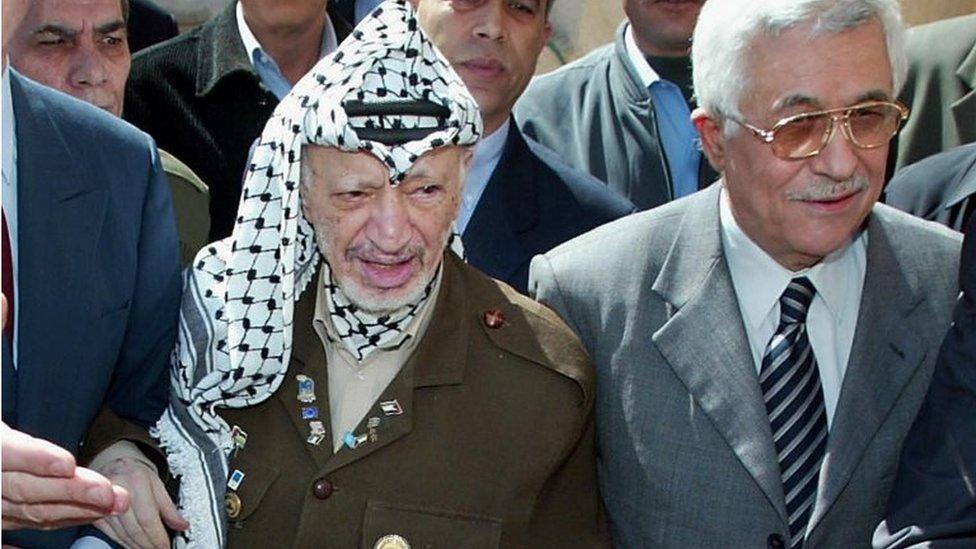
Mahmoud Abbas (right) is the Palestinians' second president
A deep schism persists between the president's Fatah faction and its rival, Hamas. It is a split which has induced a state of paralysis.
Hamas won a parliamentary poll in 2006, a year after Mr Abbas became president.
In 2007, it reinforced its power in Gaza, ousting forces from the Fatah-dominated Palestinian Authority (PA), after days of clashes. The PA was left to run parts of the Israeli-occupied West Bank.
No presidential or legislative vote has been organised since, and President Abbas is now in the 13th year of a four-year term.
Last year, local elections took place only in the West Bank and were boycotted by Hamas.
Factional rift
Increasingly, there are open discussions among ordinary Palestinians as well as Israeli officials and foreign diplomats about who could be the next leader.
It is expected that Hamas will nominate Ismail Haniyeh, head of the Islamist movement.
A Hamas spokesman, Hazem Qassem, insists that any future presidential contest "must be an affair for all Palestinians, not an internal Fatah issue".

Hamas (above) and Fatah have been deeply split since 2007
However, after the latest attempts at a Hamas-Fatah reconciliation failed, his group could well be sidelined.
According to Palestinian Basic Law, if the president dies or is incapacitated, the parliamentary speaker should fill in while elections are organised.
As the current speaker is Aziz Dweik of Hamas, many Fatah officials have argued this article no longer applies. They point out parliament has not met in over a decade because of Israeli restrictions on Palestinian movement and due to the Palestinians' political split.
Last year, Mahmoud al-Aloul, a former governor of Nablus, was appointed as the first-ever vice-chairman of Fatah.
Figures in his party have since said that if Mr Abbas was unable to carry out his duties, he would take over for three months as acting president until elections could be held.
That would leave the Fatah Central Committee - the party's top decision-making body - to make the decisions about who would ultimately become president.
Key figures
For Palestinians, the most popular of the committee's 18 members is Marwan Barghouti, who led Fatah's Tanzim militant group during the 2000-2005 uprising against the occupation, or intifada.
Although he is in jail in Israel, serving five life terms for involvement in murdering Israelis, he remains influential and has led efforts to end divisions with Hamas.
"Support for him is widespread in both Gaza and the West Bank," says Khalil Shikaki, director of the Palestinian Center for Policy and Survey, which conducts regular polls.
"[In an election] he can defeat Abbas, he can defeat Haniyeh and looking at all leaders from the other factions, from Fatah, nobody gets even close to him."
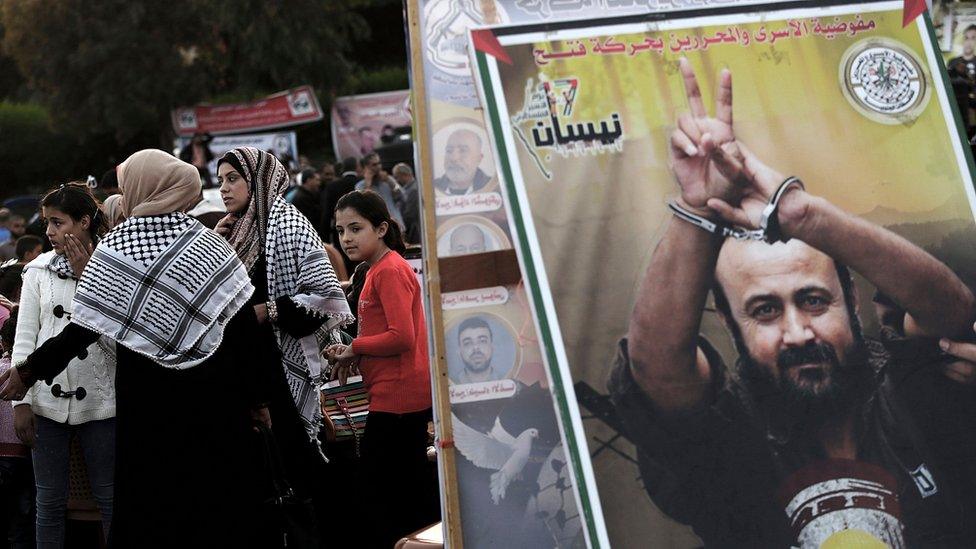
One of Mr Abbas' potential successors is serving five life terms for murder in an Israeli prison
If Mr Abbas does not stand in a future vote, Barghouti has previously indicated he would run for the presidency from his prison cell.
However, with no sign from Israel that it would release him, his part in any presidential race could be as kingmaker, rather than candidate.
Three other potentially important players have strong backing in the security forces or else the money and regional favour to launch a credible leadership bid:
Jibril Rajoub: a former militant who used to command Preventive Security in the West Bank. Known for his blunt manner, he maintains his public profile through his role in sports bodies. Last year he was elected secretary general of the Fatah Central Committee.
Majed Faraj: head of intelligence. As a a negotiator in the last round of failed peace talks with Israel, he apparently impressed Israelis and Americans.
Mohammed Dahlan: led the PA's Preventive Security force in Gaza until 2007. He was expelled from Fatah after falling out with the president and now lives in luxurious exile in Abu Dhabi. He has close ties to regional leaders.
Division of posts?
While these men and others undoubtedly regard themselves as possible future presidents, there is no clear frontrunner and analysts warn against second-guessing the dynamics within Fatah.
"The names you hear about most often are basically former security people because these are whom Israel is most comfortable with and whom Western donors have interacted with and vetted," says Nathan Thrall of International Crisis Group.
"These sometimes correlate with what's realistic in Fatah power structures but oftentimes not."

One potential post-Abbas scenario would see the division of his titles: president, chairman of Fatah, and head of the Palestine Liberation Organisation (PLO).
If different individuals took these jobs it would allow for a more collective political leadership.
This might involve Saeb Erekat, chief negotiator and secretary general of the PLO, although he has recently suffered from poor health and had a lung transplant.
Another name often mentioned is Nasser al-Kidwa, a former foreign minister and representative to the UN who is also nephew of the revered late leader, Yasser Arafat. However, he recently handed in his resignation to the Fatah Central Committee in a sign of internal strife.
Some predict a dramatic power struggle once Mr Abbas is gone.
For now, though, he is trying to give the impression of being firmly in control and the jockeying for position remains mostly behind the scenes.
- Published1 July 2021
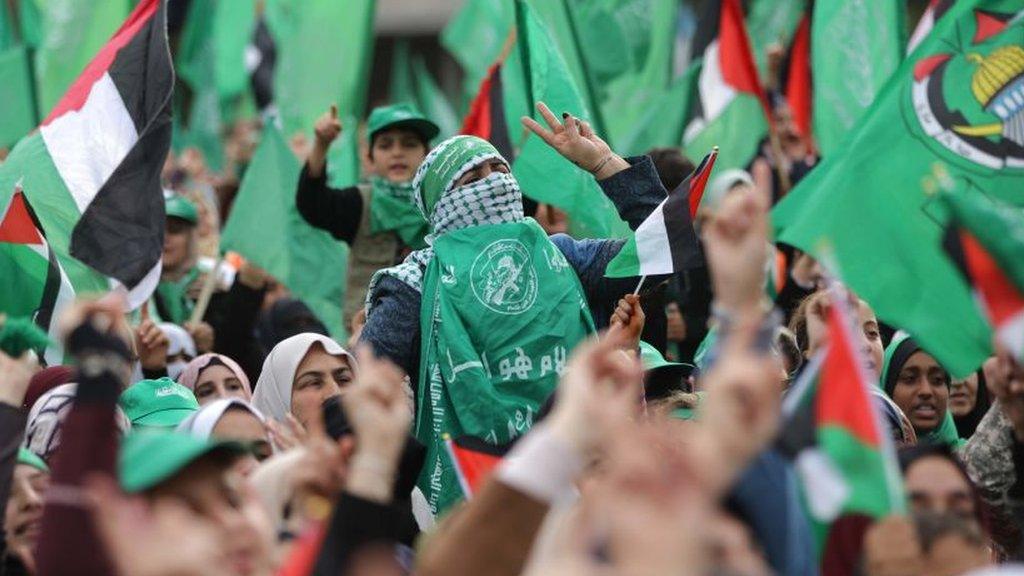
- Published26 June 2023
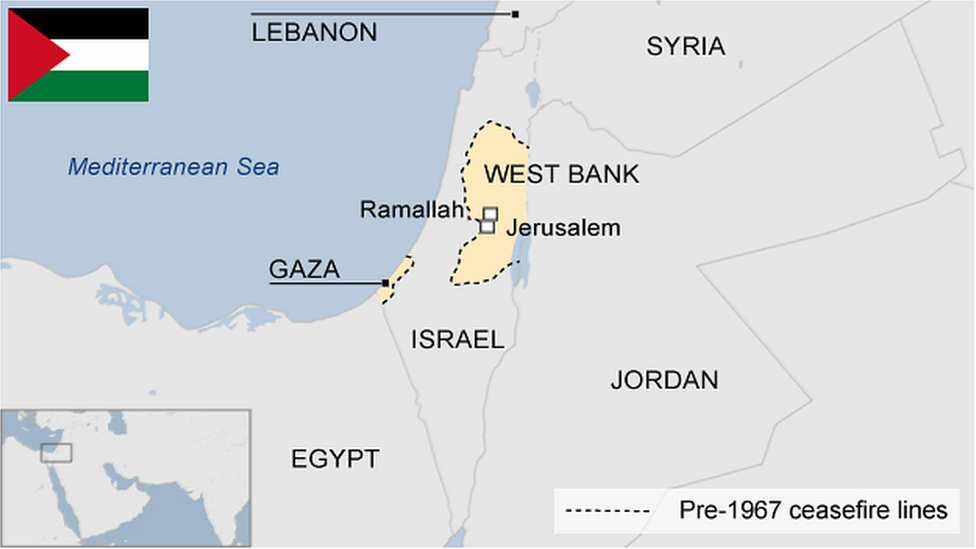
- Published16 January
